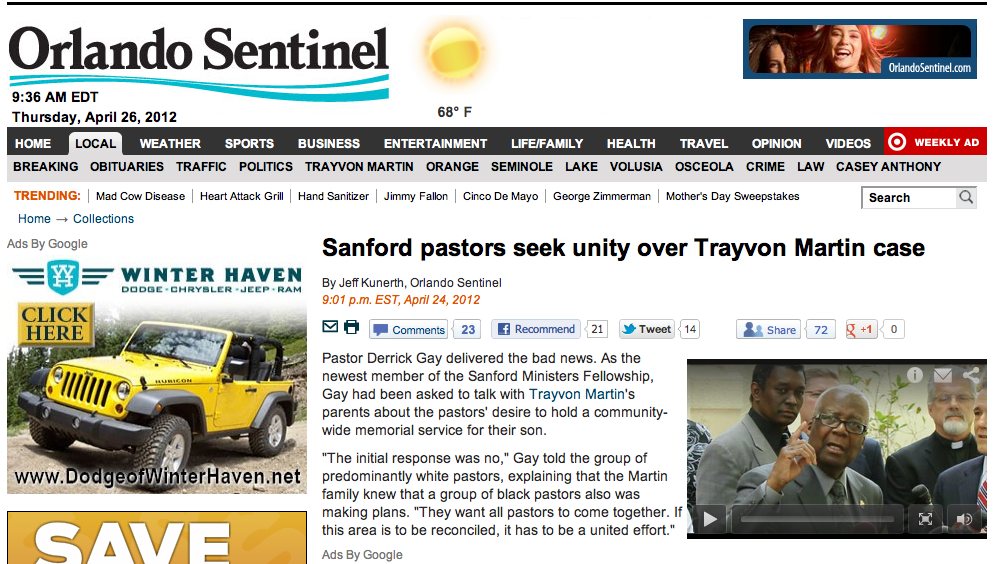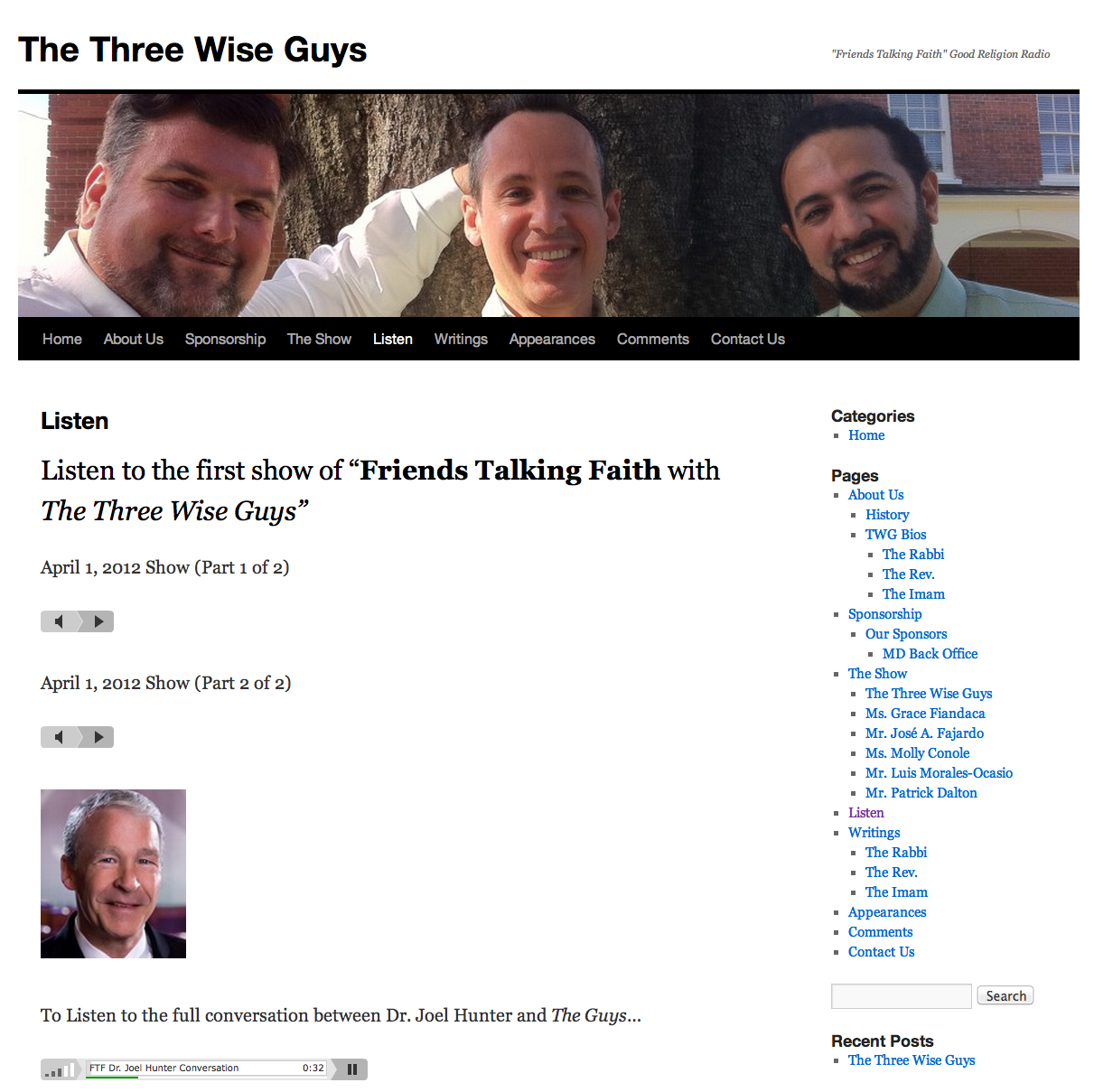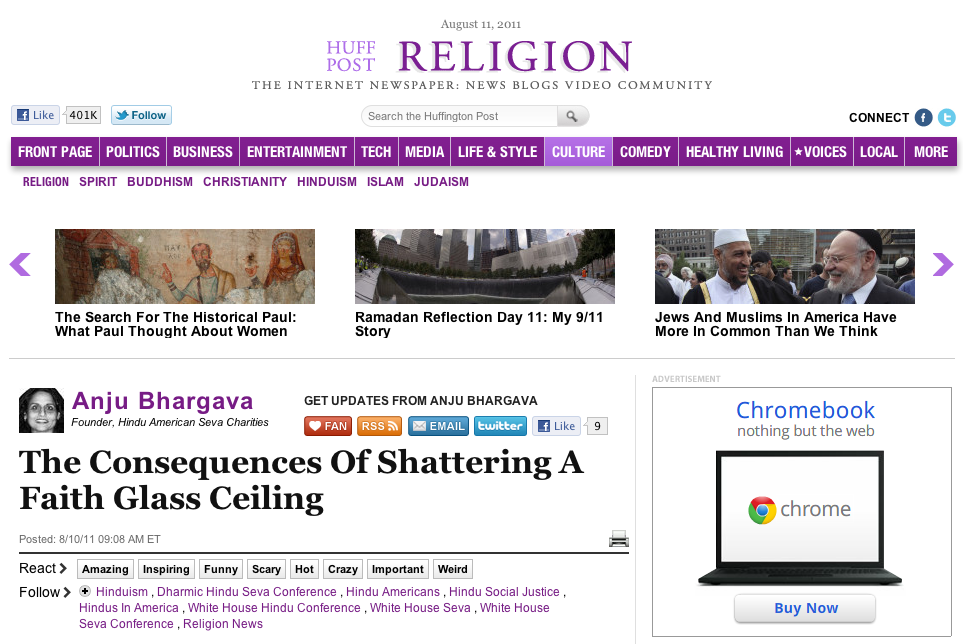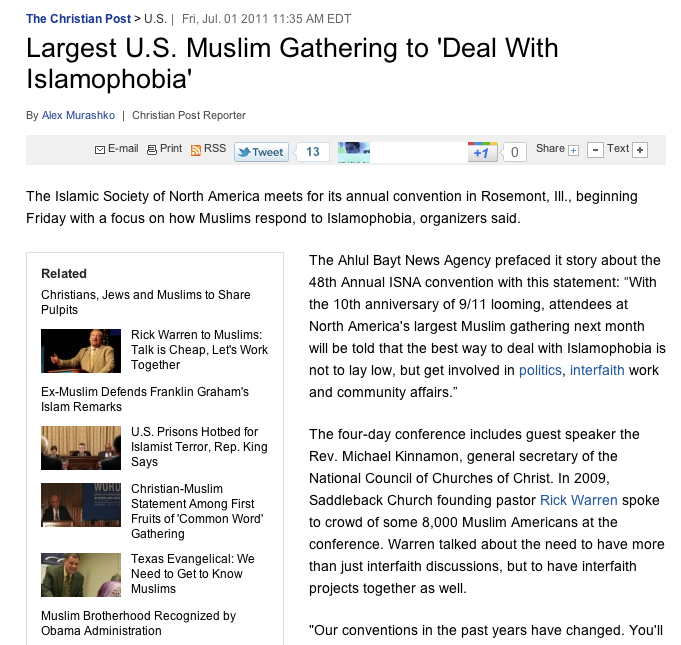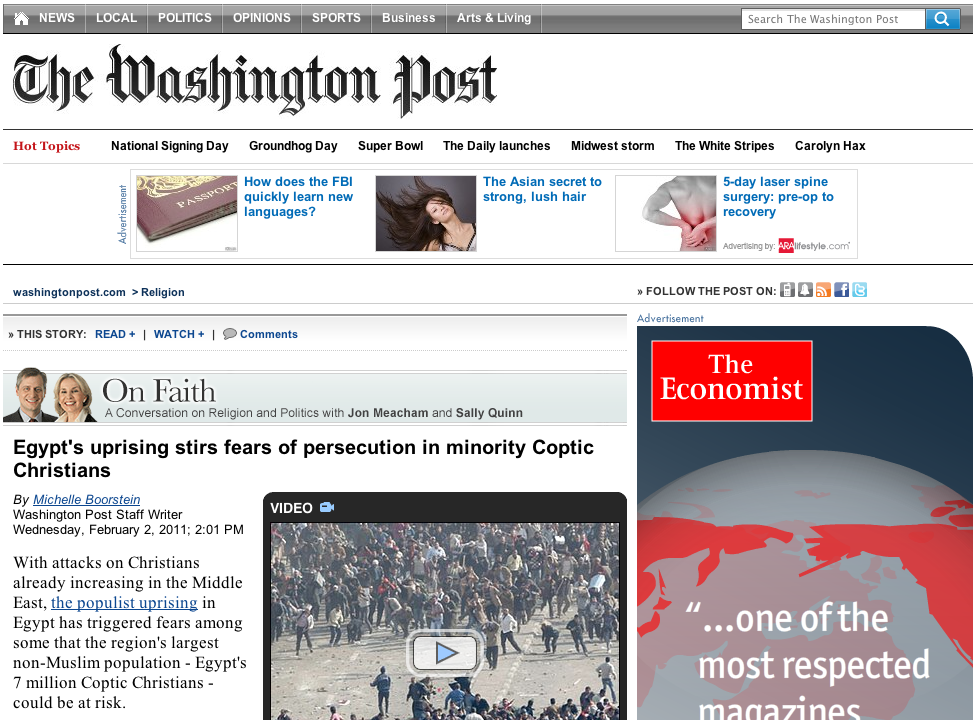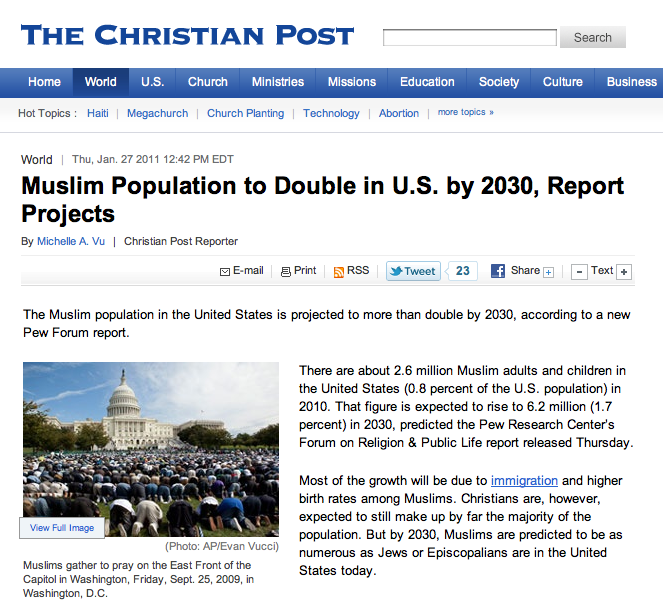World Evangelical Alliance condemns the burning of the Qur’an
Terry Jones, minister of a 25-member congregation in Gainesville, Florida publicly burned a copy of the Qur’an today — as he had warned he would do — an act strenuously condemned by the World Evangelical Alliance (WEA). The WEA is the global association of evangelicals, representing some 600 million Evangelical Protestants around the world. “The burning of a sacred text is wrong and unwarranted. The burning of the Qur’an is especially grievous to Muslims and does not reflect the biblical values nor the spirit of the Lord Jesus whom we serve," said Dr. Geoff Tunnicliffe, Secretary General of the WEA. "We appeal to Islamic leaders worldwide to understand that this self-proclaimed antagonist does not represent Christians. Indeed he violates the call of Jesus to love people everywhere. Such violence does harm to us all. ”
Jones' public burning followed a personal meeting and intense conversation just one day earlier with representatives of the World Evangelical Alliance (WEA), including Tunnicliffe.
Tunnicliffe had personally challenged Jones to listen to fellow Christian leaders from North America — and if not them — at least hear concerns of a Christian pastor from an Islamic country. Rev. Daniel Ho of Kuala Lumpur, Malaysia was at the meeting requesting that Jones divert from this course of action, along with Dr. Joel C. Hunter, pastor of Northland Church in Orlando and Dr. Brian Stiller, Global Ambassador for the WEA. The group met with Jones for approximately 90 minutes.
Jones first came to public attention in September, 2010 when he threatened to burn a Qur’an. He eventually withdrew his threat, but staged an online mock trial on Islam and burned a copy of the Qur’an in April 2011. Within days, 22 UN workers and nine protesters were killed in Afghanistan, two were dead in Pakistan, with churches attacked and Bibles burned in Hyderabad.
Jones’ current campaign is directed at the Iranian government around the issue of imprisoned pastor Youcef Naderkhani, who has been tried and convicted of apostasy and attempting to evangelize Muslims. Naderkhani is under sentence of death, a matter strenuously objected to by the US State Department, the Canadian government and other countries.
However, Jones admitted during the meeting with WEA members that the case of the Iranian pastor was simply a current opportunity to object.
In meeting with Tunnicliffe and associates, Jones said that after spending 30 years in Cologne Germany, he returned to find his beloved America awash in moral corruption, weakened by a failing church, diminished by a “gutless” government and overrun by Islamic clerics and their threat of Sharia law. Jones said: “God spoke to me” about defacing Islam in desecrating its Qur’an and doing what he could to “wake up America.”
Operating under Stand Up America Now, an organization whose purpose, according to its website is "is to encourage Americans and the Church to stand up." Jones concedes this had nothing to do with Christian love or evangelism, but are “acts of resistance or revolution.”
Because love and evangelism were weak, “unable to make a dent,” Jones believed it was time to cause a stir. He says that he had no idea of the public interest in the public burning of Islam’s holy book: “I didn’t realize it would create such a stir.”
But he took that very stir as a sign: “God wanted me to get involved.”
The Friday, April 28 meeting was a tough, no-holds-barred conversation. The dialogue was respectful, direct and civil. The WEA group focused on biblical values, living as Jesus would have us live, caring for consequences of Christians in other lands and reviewing Jones’ logic that he was the courageous one.
Jones confusion over love for America – as he thinks it was and should be – and the Gospel was obvious. While reminding the delegation that he followed Christ, he no longer believes loving others is a fair and workable strategy.
“Would you be willing to come to Malaysia and look into the faces of my family and tell them why you burned the Qur’an, if your action caused my death?” asked Malaysian Pastor Ho. Jones had no answer.
Asked if he had ever met a Christian leader from a Muslim-dominated country, he laughed. When asked if he ever had concerns over what his actions and words did to Christians in such countries, he said, “I bear no responsibility.”
Pressed to line up his actions with biblical values and the call of Jesus, he referred to Abraham and Moses, examples of “biblical characters that have done crazy things.”
“God told me to do it,” is his central mantra.
The WEA group pressed him with his own logic: if his end game was to get the attention of the American government, why not do some outrageous act that would really get them to listen? And if he wanted to point out the errors of Islam, why not go to an Islamic country and burn a Qur’an there?
He laughed: “They’d kill me.”
Jones was reminded that by standing behind the defenses of free speech laws in the United States — aware that what he is doing may very well get others killed —was an alarming demonstration of cowardice. If he really wanted to show courage, one member noted, then he should go to where his actions will get him killed. Then he would be courageous.
His response? “Yes but I’d be killed.”
Geoff Tunnicliffe closed our meeting with the story of William Wilberforce, an English Member of Parliament who chose to give his life to end slavery.
In the recent movie, Amazing Grace, a government minister rose in the British parliament after the passing of the anti-slavery legislation and said in effect: "When we think about heroes our minds go to people like Napoleon. Yet when his head lay on a pillow at night, he dreamt about death and violence. Mr. Wilberforce when your head lies on the pillow tonight, you will think about those you had part in freeing across the world."
At the meeting, Tunnicliffe asked, “Pastor Jones when you put your head on the pillow what kind of images do you want to see?”
Tunnicliffe noted: “As I travel the world, I recognize the tensions between Muslims and Christians. However, it is critical that we find respectful way of dealing with our differences. Not only is it important that we learn how to live with respect and in peace. For us as Christians, it is our calling Jesus’ to follow in his ways and in the spirit of his love.”
FIND THIS ARTICLE AT: http://www.worldea.org/news/3965
